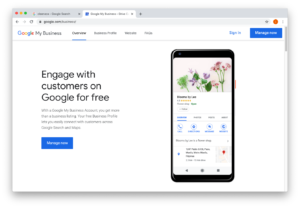As an online freelancer, you’re always at risk of getting ripped off. But with these 14 tips, you can protect yourself and make sure you get paid what you’re worth. From negotiating a fair rate to using contracts, these tips will help keep you safe and secure when working online. So read on, and learn how to avoid being taken advantage of as a freelancer!
1. Get everything in writing.
One of the most common mistakes for first-time freelancers is not having contracts. This can lead to misunderstandings and problems down the line. So before starting your job, make sure you have a contract in place that spells out the expectations and obligations of both parties.
2. Be paid upfront.
When you are working online, always make sure to ask for payment first, especially if the job is easy and small. It is also important to be careful when dealing with clients you don’t know or who are from other countries.
3. Use escrow services.
Even if your clients don’t pay you upfront, these techniques can help you get compensated for major projects. Escrow services can safeguard you by holding payments until the work is completed.
This gives you security and peace of mind.
4. Set clear deadlines.
If you want to avoid scope creep, you need to design and plan your project well. This includes having clear goals and understanding what your client wants from the finished product- now and in future modifications or additions if they happen during the project. Establishing deadlines will also help ensure success by making sure all parties are working towards achieving them together instead of letting individual requirements get forgotten about until there’s not enough time left.
5. Have an Invoice.
As a freelancer, one of the most important things you can do is to make sure you are always paid on time. This can be a challenge when you are dealing with clients from all over the world, with different payment schedules and methods. An automated invoice system can help to avoid any confusion about what was supposed to be paid and when.
To avoid being paid late or not at all, you should set up an automated invoice system. There are many different software programs that can help you do this. Find one that fits your needs and you’ll be glad you did. This way, you’ll always get paid on time!
6. Keep good records of your conversation and meetings
Working on a big project can be a daunting task, especially if you are working with a client from hell. In order to avoid any misunderstandings, it is important that you keep all the records of your conversation and meeting about the project. This will help to make sure that both parties are always on the same page.
Freelancers often make the mistake of not keeping track of their conversations with clients. This can lead to problems down the road. If a client claims that you agreed to do something that you did not, it can be difficult to prove otherwise without records. Therefore, it is always advisable to keep careful records of all communication with clients, in order to avoid any misunderstandings or problems later on.
7. Know your rights.
As a freelancer, it is important to be familiar with the laws in your country or state that relate to freelancing. This will help you avoid any legal problems in the future. For example, you may need to get a license to work as a freelancer in certain professions. Additionally, there may be restrictions on who you can work for and what types of projects you can take on.
By familiarizing yourself with the laws ahead of time, you can avoid any legal problems down the road. There’s also another good reason to familiarize yourself with the laws regarding freelance work: it will help you protect yourself from bad clients.
If you know your rights and responsibilities as a freelancer, you can avoid getting taken advantage of by a bad client.
8. Protect your work.
Freelancers often overlook the importance of copyright and trademark registration, but these legal protections can be crucial in preventing bad clients from taking advantage of your work. If you create original works of art or writing, you can register copyrights to prevent others from using your work without permission.
Similarly, if you have a unique name or logo for your business, you can register trademarks to prevent others from using them without your consent.
Taking these simple steps can help you avoid the risk of having your work used without compensation.
9. Don’t sign away your rights.
As a freelancer, it’s important to be careful what you sign. You may be asked to sign a contract that includes a clause giving away your copyright or intellectual property rights.
Or you may be asked to sign a nondisclosure agreement (NDA) that prevents you from discussing your work with others.
While it’s tempting to simply sign whatever document is put in front of you, doing so can put you at risk. If you’re not sure what a contract or NDA entails, seek out legal advice before signing.
It’s also a good idea to avoid working with bad clients who refuse to budge on unfair terms. By taking these precautions, you can help protect yourself from the risks associated with signing away your rights.
10. Use a nondisclosure agreement.
For many professionals, work consists of jobs that are posted on a website or come through a company. The job may be for a specific amount of time, or it may be open-ended.
In either case, the freelancer is expected to complete the work to the client’s satisfaction. But what if the work involves sensitive material, such as an unpublished manuscript or an unannounced product design? In such cases, it’s important to have the client sign a nondisclosure agreement (NDA).
This will protect both the freelancer and the client in case the material is leaked. It’s also a good idea to check with the website or company that you’re working with to see if they have any policies regarding NDAs.
By taking these precautions, you can ensure that your talent and your customers’ trust are not compromised.
11. Be aware of scams.
When job hunting, always be wary of anything that sounds too good to be true. If a job posting on a website seems to have very few requirements or offers an unusually high rate of pay, it’s likely a scam. Unfortunately, there are many people who will take advantage of inexperienced freelancers by promising them to work and then disappearing once they have received payment.
Always research a company before agreeing to work for them. A simple Google search can often reveal if others have had bad experiences with the company in the past. Once you have found a legitimate job and begun working for a client, remember that you are a professional and deserve to be treated as such.
Establish clear boundaries and expectations at the beginning of the working relationship so that there are no misunderstandings down the road. And finally, always get everything in writing. A signed contract protects both you and the client in case of any disagreement.
By following these simple tips, you can avoid becoming the victim of a freelance scam.
12. Don’t work for free.
Working for free is one of the most common ways that freelancers get taken advantage of. While you might think you’re giving yourself a leg up by working for free, you’re actually just setting yourself up to be taken advantage of.
Best freelancer work for free? The answer is No!.
Best freelancers know their worth, and they know that their work has value. If you’re not getting paid for your work, then you’re not valuing yourself or your work. And if you don’t value yourself or your work, then how can you expect clients to value you or your work?
There are plenty of client horror stories out there of freelancers who have been taken advantage of by their clients. They’ve been asked to do more and more work without being compensated for their time. They’ve been promised exposure or valuable experience, only to be given the bare minimum in return.
And worst of all, they’ve been basically cheated out of their hard-earned money. So if you’re thinking about working for free, think again. It’s not worth it. The best freelancers know that quality work deserves to be compensated.
13. Join a professional association.
If you’re a freelancer, chances are you’ve been taken advantage of at least once. It’s easy to feel like you don’t have any recourse when companies or clients try to lowball you, but one of the best ways to avoid getting ripped off is to join a professional association.
These organizations can provide job boards, resources, contact, and advice for freelancers in all industries. They can also help to resolve disputes and act as a liaison between freelancers and companies or agencies. While there is often a membership fee, the peace of mind and protection that comes with belonging to a professional association is well worth the cost.
14. Get referrals
If you’re new to freelancing, one of the best ways to get started is by asking for referrals from other freelancers. job boards and website(s) can be a great way to find work, but they can also be extremely competitive. By contrast, getting a referral from another freelancer is often a much more efficient way to land a job.
Not only does it give you a leg up on the competition, but it also demonstrates that you have the endorsements of other professionals. Moreover, referrals can often lead to lasting working relationships. So if you’re looking to break into the freelancing world, be sure to ask your network for referrals.
Conclusion:
Freelancing can be a great way to make a living, but it’s important to be aware of the risks involved. By taking precautions and being informed, you can minimize the chances of being ripped off or scammed.
Remember to always get paid upfront for any work you do, and don’t be afraid to ask for referrals from other freelancers. With a little bit of effort, you can make freelancing work for you.
Do you have any tips to add? Let me know in the comments below!






































